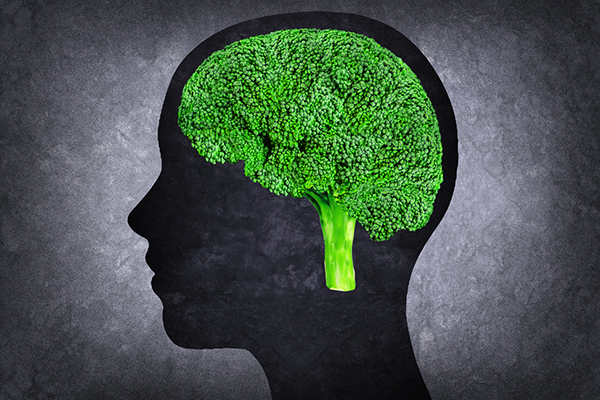Why You Regain Weight — and How to Fight It

Congratulations — you’ve hit your ideal body weight!
Now what?
Your new mission, should you choose to accept: keeping that weight off. But the hard truth is that you might find yourself struggling with the creeping menace of weight (re)gain.
Hitting your goal weight can be scary (and kind of a letdown), depending on how long it’s taken you to get there. And the chance of regaining the weight you just lost is pretty high — around 80 percent, some research says.
But before you throw up your hands and dive head-first into the nearest plate of cheese fries, just know that you don’t have to be a statistic. To keep the weight off, it’s important to understand how your body has changed and learn practical strategies to help you maintain weight loss.
Why Maintaining an Ideal Body Weight Is a Balancing Act
“Energy balance” is a key concept to understand if you want to lose weight and keep it off: What you consume through food and beverages (energy in), must be balanced with the everyday needs of your body to do things like breathing, moving, digesting, etc., (energy out).
So, if over time, you’re able to match the calories coming in with the amount of energy your body needs, then you won’t gain or lose much weight — and your waistline should stay about the same size. But if you upset the balance and start taking more energy in than you’re expending, you’ll most likely gain weight.
You don’t need to hit an exact balance each and every day; you need to preserve the equilibrium in the long-term.
But you should also be aware of other factors that can be influential as well: “This balance is affected by a number of factors besides just what we eat and how much we exercise,” says Jessica Cording, M.S., R.D. “Age, sex, health conditions, and medications are just a few examples of things that may impact that balance.”

How Your Brain Fights Weight Loss
One of the reasons most people pack on the pounds again is primarily due to a slow creep of calorie intake, either conscious or not. “The brain fights back against weight loss,” says Stephan J. Guyenet, Ph.D., a former obesity and neuroscience researcher and author of The Hungry Brain.
“Body fatness is actively regulated by nonconscious circuits in the brain — particularly a brain region called the hypothalamus — and these circuits evolved primarily to prevent weight loss,” says Guyenet.
Periods of low calorie intake were a huge threat to survival and reproduction for our ancestors, so evolution reworked our bodies to fight back any time our energy-dense fat stores began to wane.
“This ‘starvation response’ ramps up hunger, increases our perception of the seductiveness of food, and reduces calorie expenditure,” Guyenet explains. “It primarily drives us to eat more, and it’s quite effective — it can undermine our best intentions to maintain weight loss.”
How Weight Loss Changes Your Body
Research also shows that some of your body’s functions — most notably your metabolism and hormones like leptin, the “satiety hormone”— may be altered by the change in energy restriction required to lose weight.
“The key event that triggers the body’s ‘starvation response’ to weight loss is a decline in circulating levels of the hormone leptin,” says Guyenet. “The brain perceives this decline and initiates the starvation response. When researchers prevent leptin from declining in weight-reduced people, the starvation response doesn’t occur, showing that the decline in leptin is the key signal to the brain that drives changes in appetite and metabolism.”
Levels of leptin are also affected by the amount of body fat you have: If you gain weight, leptin increases, and if you lose fat, leptin drops, prompting an increase in appetite.
A 2011 study published in the New England Journal of Medicine showed that even at 1 year after weight loss, the amount of leptin wasn’t able to rebound to pre-weight loss levels, making weight regain extremely likely.
Why Weight Loss Makes You Want to Eat More
After weight loss, the drive to eat ramps up, which almost always results in an increase in calorie intake.
“The metabolic rate also slows after weight loss, for two reasons,” says Guyenet. “First, you have less tissue mass, and therefore you need fewer calories to maintain your body’s normal metabolic processes and to move around. Second, as part of the ‘starvation response,’ you begin to burn fewer calories per unit mass, especially during physical movements.”
To keep your hunger in check, Guyenet suggests focusing on foods that are higher in protein and fiber (more filling) and lower in calorie density, getting enough sleep, managing stress, and getting regular physical activity.

How Much Exercise You Need to Maintain Weight Loss
The Centers for Disease Control and Prevention and the American College of Sports Medicine recommend at least 150 minutes of moderate exercise per week or 20–60 minutes of vigorous activity (or a mix of both), plus strength training twice a week.
“However, this is general advice — maintaining weight comes down to finding what works best for your body, since every body is different,” says Cody Braun, a Beachbody fitness expert. How much you need to exercise also depends on your muscle mass and body fat percentage, but following these guidelines can help maintain your weight and decrease health-related risks.
You also need to change up your routine occasionally to fight adaptation: “If you do the same style of exercise with the same weight every day, you’ll stop seeing benefits because your body has adapted to do that activity well,” says Braun.
“You hit a plateau when you stop adaptation. You need to change the style of training or the intensity to continue forcing change and keep weight off. Going from a sport-training program like INSANITY: The Asylum to an MMA-style program like CORE DE FORCE will be a great way to change up your cardio. For strength training, going from the P90X series to Body Beast will force a new adaptation on the body,” he recommends.
Ready to put things into practice? Here are six actionable strategies to keep that weight off — for good.
6 Easy Strategies to Help Maintain Your Ideal Body Weight

1. Put healthy food front and center
You need to stack the deck in your favor so that healthy foods are always within reach. “Controlling your food environment, so that slimming choices are easy and fattening choices are hard, is essential,” Guyenet says.
Now that you’ve meal-prepped your way to weight loss, keep those good habits going: Stock your pantry with essential ingredients, keep learning new healthy recipes, and order smart when eating out.
2. Remember that you’re not “on” or “off” a diet
A solid nutrition plan is one that helps you lose weight for good with new, healthy eating habits that continue long after you hit your goal weight. There shouldn’t be an “off” switch; the lifestyle changes you made should be ones that keep you healthy and happy in the long-term.
“If there are certain indulgences you want to include, you can,” Cording says. “Just know that you’ll need to come up with ways to make room for them by making adjustments elsewhere in your day or week.”
3. Find alternatives for your favorite foods
Everyone has their Kryptonite — it could be salty, crunchy chips, sweet treats, or starchy, carb-y goodness. The key is to have a plan in place to help you manage that specific craving when it hits.
“The problem for most people is not the carbohydrate or fat, per se, but the fact that rich, refined, tasty foods cause us to eat too much and don’t trigger the satiety, or fullness, response very effectively,” says Guyenet.
If you prefer not to have a cheat day with the “real deal,” then healthy food swaps are your friend: Instead of white pasta, swap in veggie noodles; instead of calorie- and fat-bomb dessert, swap in a delectable and healthier treat like double chocolate, no-bake vegan brownies. There are endless ways to create the same flavors and textures of your favorite foods.
4. Weigh yourself regularly
Don’t forget to check in regularly with yourself — weigh yourself at least once a month to catch any weight regain, or use an item of clothing as a “measuring” device to help you make sure you’re staying within your goal range.
Tracking your weight regularly will clue you in to trends and address issues that come up before they become problems. And, if you don’t already have a fitness tracker, consider using one to motivate you and help maintain your awareness of your physical activity.
But don’t get too hung up on that number on the scale; remember, your weight can fluctuate from day to day, even hour to hour, so keep calm and carry on. In addition, muscle weighs more than fat by volume. That’s why super fit guys like Dwayne “The Rock” Johnson are technically “obese,” according to BMI charts.
5. Track your food and workouts to identify habits
“I encourage keeping a food diary and logging your workouts,” says Cording. Whether you opt for a tech-based solution, like an app or tracking device, or simply use a notebook is up to you. “Either way, this can help you spot patterns that may be helping or hurting you,” she says.
6. Enlist the help of an expert
A registered dietitian or health coach can also be a great help, as they can guide you in devising an individualized plan for weight-management success.
“There’s no ‘one size fits all’ when it comes to weight loss and weight maintenance, and the investment you make in working with an expert can help you empower yourself to enjoy a happy, healthy lifestyle for the long haul,” Cording says.
The Bottom Line
Set realistic, measurable goals, and be honest with yourself about what’s attainable and sustainable, Cording says. “Anticipate situations that will be tricky for you and come up with plans to address those issues.”
Above all, make sure you prioritize your weight-maintenance goals. Cording reminds her weight-loss clients that their workouts, meal-prep time, and breaks are as important as anything else happening in their lives. “I often see people put their own needs at the bottom of their to-do list, but I actually encourage my clients to put their own name in their calendar.”
Your mindset has to change from “losing weight” to “not gaining weight.” But it shouldn’t be a drastic change; many of the habits that helped you shed pounds in the first place should prevent you from regaining weight — the key is to be consistent.
